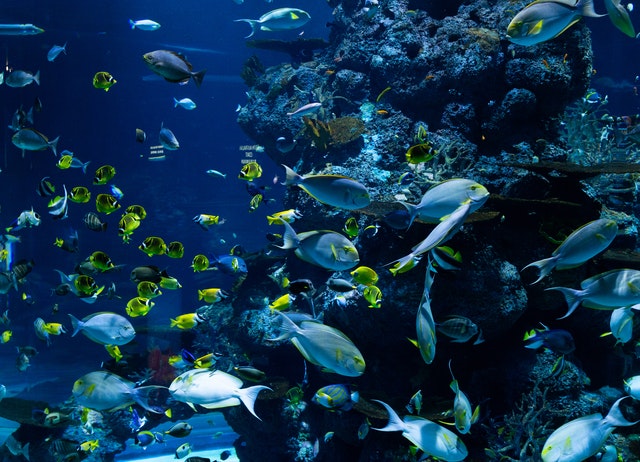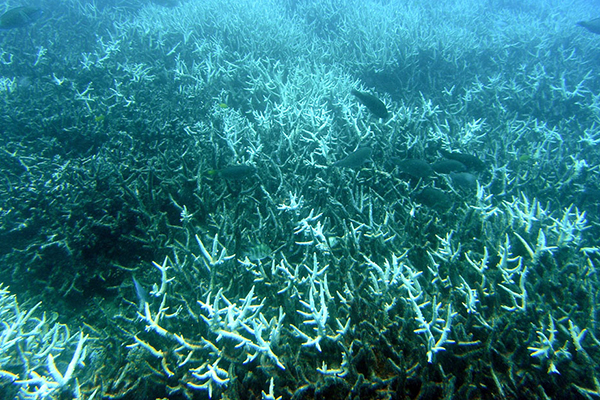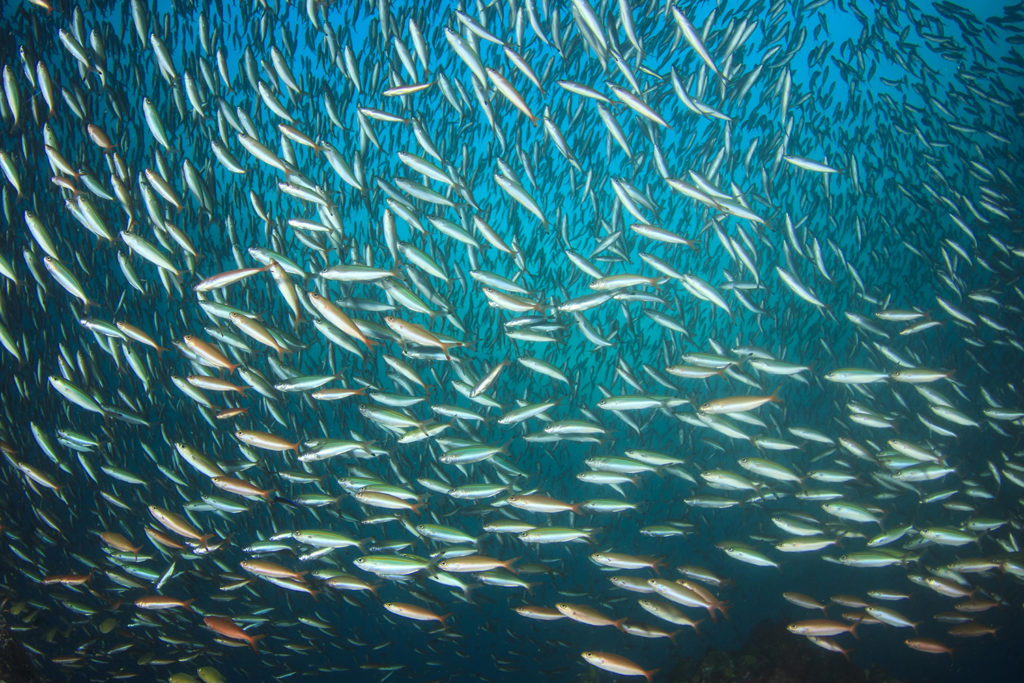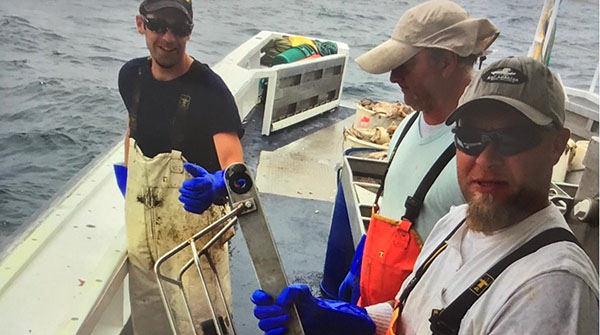Larger fish are more likely to experience oxygen deficiency in warming water than smaller species, says study

Larger fishes are more likely to experience oxygen deprivation in warming water than smaller species, according to a new study from Radboud University in the Netherlands.
The study, which was published in Global Change Biology, also found the same applies to fish with large cells, and that marine fish are less tolerant of oxygen-depleted water than freshwater fish. Based on these insights, the researchers ultimately aim to predict which aquatic species are at risk due to changes in their habitat caused by global warming and human activities.
“Once we have identified these rules for fish, we can ultimately predict which fish species are most at risk from environmental change,” said researcher Wilco Verberk.
Declining dissolved oxygen levels represent a major problem for fish and other aquatic organisms. Oxygen levels decline because the water is heating up due to climate change and because it is becoming more polluted. General biological rules can demonstrate which fish attributes are beneficial or detrimental when environmental conditions change. Currently, biologists debate the role of oxygen in the sensitivity of fish to water subject to warming.
“Many oxygen hypotheses are being fiercely debated,” said Verberk. “The problem is that the various effects are lumped together. For example, some studies look at how fish respond to oxygen levels in the water but do not account for the temperature of the water or the size of the fish. As a result, the reported patterns are variable.”
To find answers, the research team systematically separated the various effects and compiled data on tolerance to deficiency oxygen from 195 fish. When analyzing the data, the larger fish appeared to be more sensitive to oxygen stress, but only in warm water. When the water was cold, the effect is reversed. The researchers saw a similar effect for fish that have relatively large cells.
“Many people think that all animal species have the same cell size, but some animals have large cells, and some have small cells, even within the same species,” said Verberk. “There are many advantages to having small cells, especially in warm water. For example, small cells have relatively more membrane area, which is needed to absorb oxygen from their surrounding environment.”
In addition, the research team found that freshwater fish appear to be more tolerant of oxygen-depleted water than marine fish.
“The explanation probably involves different selection pressures on freshwater fish during their evolutionary history,” said Verkerk. “In the ocean, the temperature is relatively stable, but in freshwater, the fish are more often confronted with higher temperatures. Fluctuations in oxygen levels are also larger in rivers and especially in lakes, for example, due to the presence of algae.”
Follow the Advocate on Twitter @GSA_Advocate
Now that you've reached the end of the article ...
… please consider supporting GSA’s mission to advance responsible seafood practices through education, advocacy and third-party assurances. The Advocate aims to document the evolution of responsible seafood practices and share the expansive knowledge of our vast network of contributors.
By becoming a Global Seafood Alliance member, you’re ensuring that all of the pre-competitive work we do through member benefits, resources and events can continue. Individual membership costs just $50 a year.
Not a GSA member? Join us.
Author
-
Responsible Seafood Advocate
[103,114,111,46,100,111,111,102,97,101,115,108,97,98,111,108,103,64,114,111,116,105,100,101]
Tagged With
Related Posts

Fisheries
Study: Climate change is likely ‘suffocating’ the world’s fisheries
A new study indicates the ocean is losing oxygen due to climate change, greatly affecting fisheries and other marine resources.

Responsibility
Study: 2021 breaks record for hottest ocean temperature
New research shows the ocean temperature in 2021 was the hottest ever recorded by humans, and the effects of ocean warming are "far-reaching."

Responsibility
Study: Climate change will shuffle marine ecosystems in unexpected ways as ocean temperature warms
A study found that, as the ocean temperature warms, fish will continue to exist in certain areas but are not likely to be as abundant.

Responsibility
Are mid-depth waters off the United States East Coast getting saltier from ocean warming?
A new study indicates that mid-depth waters off the United States East Coast are getting saltier, possibly due to ocean warming caused by climate change.



